To maintain the momentum of AAU’s effort to improve the quality of undergraduate teaching in learning in STEM disciplines beyond the initial eight project sites, AAU has awarded two rounds of twelve mini-grants designed to further existing efforts to improve undergraduate education. The intent of these mini-grants is to build upon and advance prior institutional commitments and newly established efforts aimed at sustained institutional change in undergraduate STEM teaching. The mini-grants are made possible by support from the Northrop Grumman Foundation.
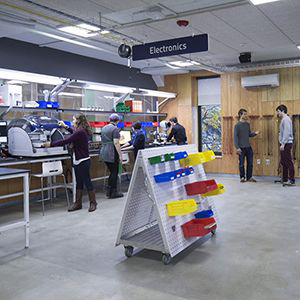
Case Western Reserve University
The Case School of Engineering at Case Western Reserve University is fundamentally changing how first-year students are taught by replacing traditional lecture-based courses with a new, signature, two-semester course sequence focused on active learning. The goals of the program are to transform the engineering student experience and introduce engineering skills, the design process, professional development and communication skills. The AAU STEM Network Mini-grant will be used to expand curricular development and faculty engagement surrounding these new courses and to develop pilot courses. The new sequence will be required for all engineering students beginning fall 2020.
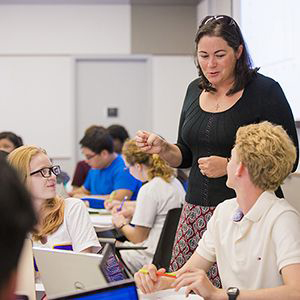
Emory University
Emory University will use their AAU STEM Network Mini-grant to support the creation and development of its Graduate Teaching Fellowship Program (GTFP), a new initiative that aims to equip graduate teaching assistants with the skills and tactics they need to be most effective in the undergraduate classroom. The GTFP project is a collaboration between the Laney Graduate School and Emory College of Arts and Sciences. The GTFP will target graduate students from all STEM disciplines interested in advancing their teaching skills. The 10-month program will equip graduate fellows with an understanding of evidence-based teaching practices, authentic assessment techniques, and basic strategies for curriculum development.
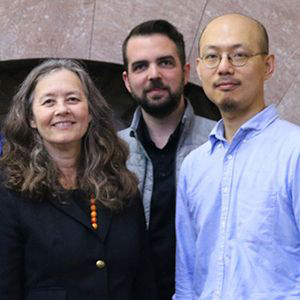
Indiana University, Bloomington
With the support of an AAU STEM Network Mini-grant, Indiana University Bloomington will create the Mitigating Grade Surprise Collaborative. A “grade surprise” is the difference between a student’s unexpected low grade in one course compared to their grades in other courses. Initial analyses of grade surprise show performance bias by gender, first generation, and underrepresented minority populations. In this collaborative, faculty representing five different STEM programs will develop, implement and assess teaching strategies and active learning interventions designed to address the impact grade surprise has upon student performance, persistence and retention in their STEM courses and programs.
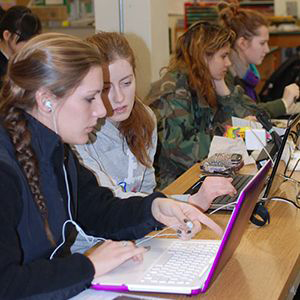
Stony Brook University
The Women in Science and Engineering (WISE) Honors program at Stony Brook University (SBU) offers educational and professional STEM opportunities for female students at all levels, as well as partnerships with academic and industry professionals by facilitating individual, institutional, and social change. WISE is the Flagship Program of SBU to promote women power in STEM and aims at becoming a national model that can be replicated at other institutions worldwide. The AAU STEM Network Mini-grant award will support the WISE program to reach full implementation of its newly designed undergraduate curriculum and to explore new rigorous mentoring practices under a comprehensive research study and evaluation.
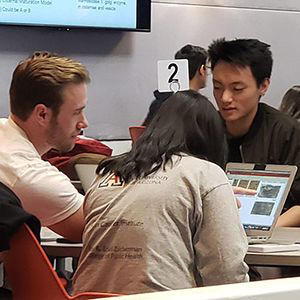
The University of Arizona
The University of Arizona (UA) will use the AAU STEM Network Mini-grant award to enhance widespread adoption of evidence-based teaching practices by supporting departmental co-teaching partnerships. Over the next two years, UA will develop, implement, and study co-teaching in foundational courses by four pairs of faculty members in STEM departments. This professional development will take place within the department, pairing an experienced active-learning faculty member (ALF) from the same department with a faculty member new to active-learning. The project will promote reflective practice regarding teaching and create spaces to discuss evidence of learning and student success prior to, during, and after the class offering.
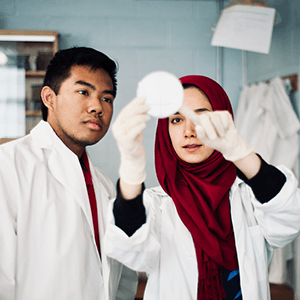
University of Maryland, College Park
At the University of Maryland, College Park (UMD) three major centers of excellence are partnering to pilot a new initiative focused on the increased adoption of inquiry and discovery in large-enrollment STEM courses. The mission of the initiative is to promote and elevate discovery-based student learning outcomes, asynchronous student progression, competency-based assessment and course-based capacities for reflection, iteration and problem-resolution. The university will use the AAU STEM Network Mini-grant to support the development and operation of two small-scale conferences for UMD faculty and staff. The first conference in 2019 will serve to develop processes and instruments that will enable the course redesign process, and the second in 2020 will focus on assessment of programmatic outcomes, reflection, initiative improvement and dissemination of results.
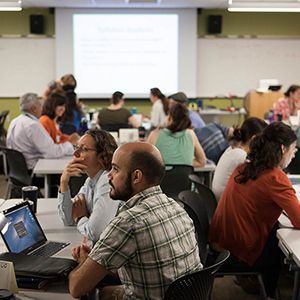
University of Oregon
The University of Oregon will use their AAU STEM Network Mini-grant award to support representatives from different STEM departments across campus to work together to coordinate curricula and share curricular learning objectives. These efforts will enable better alignment of major curricula and allow more student mobility between STEM majors. Departments will seek shared educational objectives that allow the development of new courses or sharing of existing courses to better train STEM students across all majors. Other potential outcomes include more interdisciplinary training within science majors, decreased barriers to entry into STEM fields, greater administrative collaboration across departments, more interdisciplinary hiring, more streamlined degree requirements and higher student success in STEM courses.
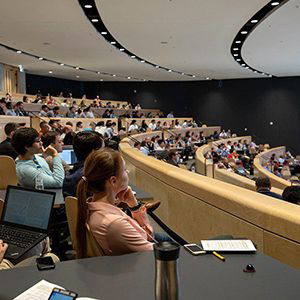
University of Toronto
The University of Toronto aims to transform engineering math education by focusing on two areas: incorporate engineering applications across first-year math courses and enhancing course instructor and Teaching Assistant (TA) training for the delivery of first-year math courses, including training in active-learning techniques. The AAU STEM Network Mini-grant will support this effort through creating a new teaching post-doctoral fellow position and lead TA positions. These individuals will work with project team leaders from the Faculties of Applied Science & Engineering and Arts & Science to examine best practices in engineering mathematics education, including identifying approaches to incorporating engineering applications within math courses.
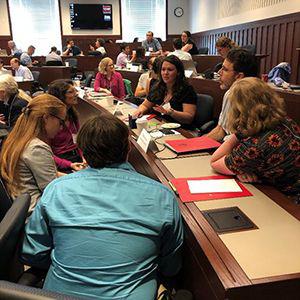
Washington University in St. Louis
The AAU STEM Network Mini-grant awarded to the Washington University in St. Louis (WashU) Center for Integrative Research on Cognition, Learning and Education (CIRCLE) focuses on increasing the visibility of the university’s current STEM education reform initiatives and expanding the community of practice around evidence-based strategies. The mini-grant will strengthen WashU’s STEM education infrastructure through creating a new speaker series, providing support for a spring 2019 conference, and establishing an interdisciplinary blog for STEM faculty. Combined together, these three pieces will provide continuous opportunities for faculty to engage in conversations about best education practices in STEM.
Also receiving grants:
- Brandeis University
- Georgia Institute of Technology
- New York University
AAU STEM Network Mini-grant Cohort I Recipients
- California Institute of Technology
- Cornell University
- Iowa State University
- Massachusetts Institute of Technology
- McGill University
- University of California, Irvine
- University of California, Los Angeles
- The University of Kansas
- University of Missouri
- The University of Texas at Austin
- University of Virginia
- Yale University